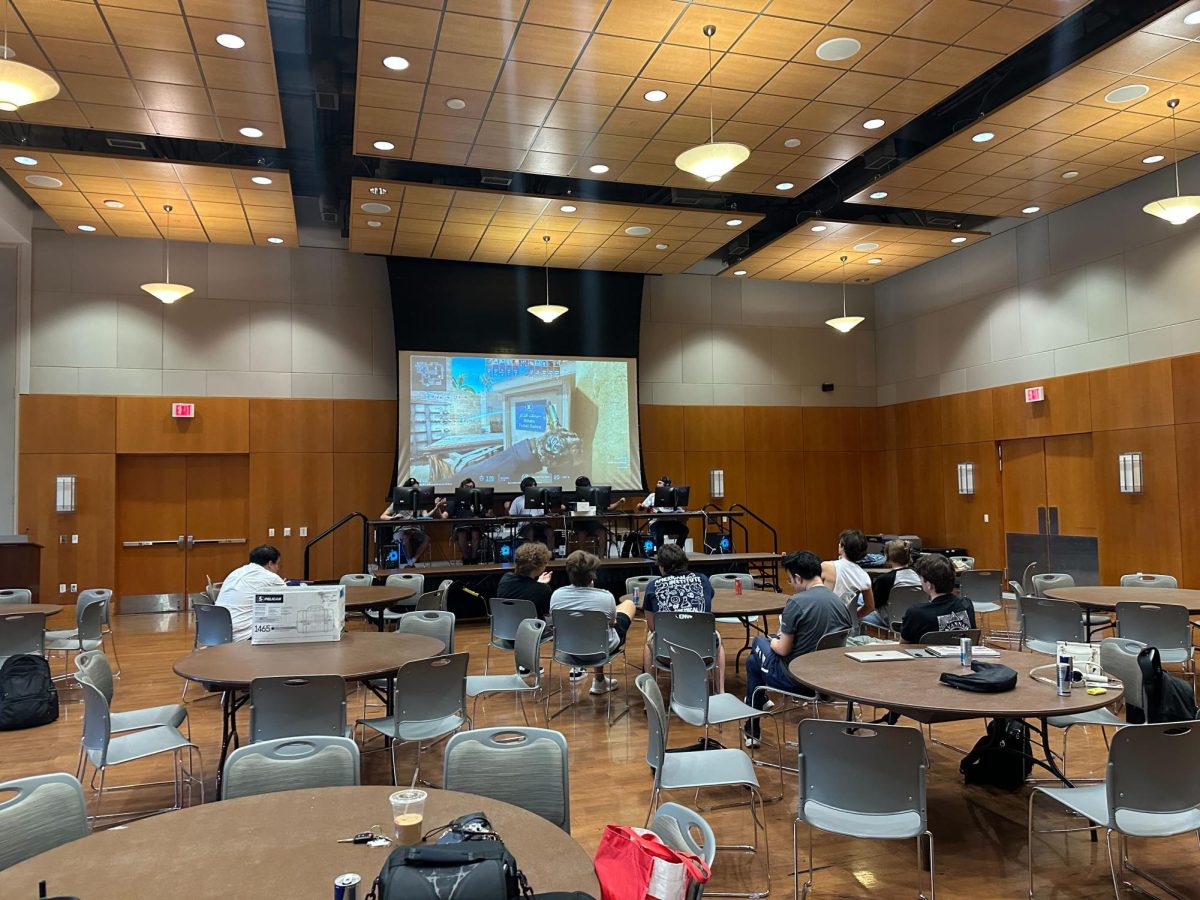Andrew Lanham hopes to catch a glimpse of the famous Marfa lights on his first trip to the West Texas city this weekend, although they won’t be the main reason for his trip. A second-year graduate student in the radio-television-film program, Lanham will be there to see his award-winning screenplay “The Jumper of Maine” performed as a stage adaptation at Crowley Theater.
“The Jumper of Maine” was one of five screenplays chosen from about 6,300 submissions for the 2010 Nicholl Fellowships in Screenwriting, presented by the Academy of Motion Picture Arts and Sciences.
After reading the third draft of his script last semester, radio-television-film lecturers Alex Smith and Beau Thorne suggested he submit his work to the Nicholl Fellowships.
In late October, while he was at his apartment about to leave for a Sufjan Stevens concert, Lanham received the phone call.
The Academy chose him as one of five winners, and he won $30,000.
“I don’t get to use the money until after I graduate,” Lanham said. “I’m going to use it to survive for a year while I’m writing screenplays.”
Lanham’s winning screenplay tells the love story of a paramedic with Tourette’s syndrome whose symptoms vanish whenever he’s on the job.
Lanham’s writing is partially based on his own experience with Tourette’s syndrome, a neurological disorder characterized by motor or vocal tics.
Lanham wants to dispel the common association of Tourette’s syndrome with cursing and vulgar outbursts. Only a small percentage of people with the syndrome have the compulsion to say obscenities, he explained.
While growing up in the small town of Bangor, Maine, as the middle child of three, Lanham first showed indications of the syndrome when he was in fifth grade.
“I chewed a hole in my tongue,” he said, commenting on one of his indications, then sticking his tongue out and pointing to the discolored indention.
After he was diagnosed, doctors prescribed him Haldol, an antipsychotic medication he began taking three times daily in the seventh grade. The medication caused him to become sluggish, sleep more than normal and gain weight. Unable to function in an academic setting, Lanham was pulled from school and spent eighth and ninth grade at home watching movies.
“I was 240 pounds before I hit puberty,” he said. “I was such a mess. Then I refused to take the medication.”
After getting off medication, Lanham returned to school and began attending a private Christian high school. He got involved in theater and acted in his first play, “Fiddler on the Roof.” It was during this period that Lanham realized his tics vanished whenever he was acting.
“I saw a surgeon on ‘20/20’ with Tourette’s whose symptoms disappeared when he was in surgery,” Lanham said. “It was like that for me when I discovered acting in high school. It’s about finding that release.”
He studied film theory at Richmond, the American International University in London, and then spent two years traveling to countries including Mexico and Thailand with Up with People, a performing arts and education nonprofit. After his time abroad, Lanham developed an interest in screenwriting and came to UT for graduate school.
Although he admitted to not being a fan of his first screenplay, his next screenplay, “The Jumper of Maine,” earned him some recognition.
Along with the Nicholl Fellowships award, the screenplay also won both the Drama Screenplay competition and Latitude Productions Screenplay Award at the 2010 Austin Film Festival in the fall.
Producer Donald De Line of De Line Pictures is attached to the script, which is currently circulating among potential directors.
Although Lanham wrote his script with a film in mind, he expressed curiosity and anticipation in how it would translate on stage. Unlike a traditional reading where actors all sit on stage and read from a script, parts of “The Jumper of Maine” will be performed, similar to a play.
“There aren’t that many really great movies about people with Tourette’s Syndrome,” Lanham said. “And most of the time, the media focuses on the obscenities. In [the screenplay], there’s also a character with Alzheimer’s and a character with diabetes. The main thing is that everyone struggles, but it’s not the only thing that defines them.”

















